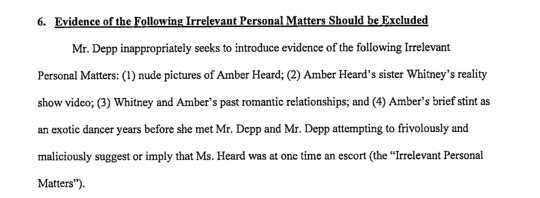#coercive control
Text
"If we wish to preserve a free society, it is essential that we recognize that the desirability of a particular object is not sufficient justification for the use of coercion."
Friedrich Hayek (1899-1992) Austrian economist.
94 notes
·
View notes
Text
New Democrat MP Laurel Collins says she began paying close attention to the issue of coercive control when her sister showed up at her door in tears.
The member of Parliament from Victoria says her sister's partner had taken away her keys, bank cards and cellphone, and tried preventing her from leaving.
"Luckily, she had another set of keys,'' Collins told reporters.
"Now, that was the first time I saw it, but over the next few years, it happened again and again and again.''
Collins shared some of her sister's story during a Nov. 9 press conference on Parliament Hill as she called on MPs to support her private member's bill seeking to criminalize a pattern of behaviour known as coercive control.
During a debate about the bill that evening, the governing Liberals and Opposition Conservatives had both offered it their backing — though some raised concerns about how it would be implemented.
Continue Reading.
Tagging @politicsofcanada
82 notes
·
View notes
Text
Sigh. Not even shocked that these men were doing this. Also, Jonah's texts sound identical (with less cursing) to Johnny Depp's texts to Amber Heard about not allowing her to work. He even fired her stylist and forced her to use his own to control her wardrobe, and hired someone to follow her around when she was on set to report back to him on every move she made and every person she talked to. He'd of course then go on to accuse her of sleeping with every single person she interacted with. These are not "boundaries", this is coercive control; it is abuse.
#alexa nikolas#jonah hill#justin long#sarah brady#amber heard#i stand with amber heard#justice for amber heard#johnny depp#anti johnny depp#depp vs heard#coercive control#hollywood predators#hollywood abusers
129 notes
·
View notes
Text
I've been super into blackmailing kink recently idk why 🙈 the thought of someone forcing me to fuck then like that is so erotic.
Something hot in concept but scary in practice 😅 damn my horny brain
Feel free to dm me your blackmailing fantasies 👀🙈
121 notes
·
View notes
Text

"You just blasphemed again."
"Okay. If you want to take it personal, that's also up to you."
"Okay" is sufficient to silence anyone who would claim to tell you what you can or can't say.
"I'm offended." "Okay." "I feel unsafe." "Okay." "Your words are causing harm." "Okay."
Here's the thing with people like Tommy Dorfman, the person with the camera: he wants to be "misgendered." It's why he has his camera at the ready. If he's not an oppressed martyr, he's just a man in a dress.
Someone with actual clinically significant dysphoria may well be distressed by being referred to in a manner opposite to how they've worked to present. But that doesn't look like a belligerent narcissist filming for likes and subs. Just like a man waving his wang around in the women's room, and a woman flashing her hoo-hah in the men's room aren't transsexual individuals, because that would be too dysphoric. They're fetishists and/or predators.
We used to go by something called "reasonable accommodations." But when we gave an inch, a bunch of narcissistic sociopaths saw an opportunity to jump in and take a mile, on behalf of the people we were trying to help. The worst enemy of the legitimately dysphoric transsexual is the genderist activist.
#coercive control#narcissism#compelled speech#misgendering#pronoun culture#pronouns#gender ideology#queer theory#religion is a mental illness
20 notes
·
View notes
Text

This quote reminded me of the experiences I've been through over the last couple of years.
I am grateful I was aware enough to recognise the signs of emotional abuse, coercive control, and attempted financial abuse before it was too late to leave easily. Readers may wonder why I didn't leave earlier, but bear in mind I was going through a very rough time with my mental health due to all the other difficult developments during that time. As they say, "don't quit on a bad day" and I tried to keep the idea alive that my relationship wasn't abusive and that other things were keeping me in a state of hopelessness and depression.
It was disturbing how he went from a person whom I genuinely liked and cared about due to his warmth, curiosity, and enthusiasm to a cold, dead-eyed robot who spoke in quotes from smug Linked In posts and the online world of toxic masculinity. I don't know if the person I fell in love with was fake all along, or if he irrevocably changed during the time we knew each other.
I feel traumatised by the experience because I sometimes think about how horribly wrong my life could have gone if I had agreed to the plans he tried to pressure me into. However, ever since I left him and cut off all contact I am slowly feeling less low self esteem and dread about my future.
I am not sharing these personal experiences to garner sympathy and attention, but instead to make people aware of emotional abuse and why it is important to put yourself first and leave abusive situations before it is too late. Thank you for reading.
8 notes
·
View notes
Text
What abuser doesn’t justify revenge bc they think they were abused.
#my text#actually traumatized#psychological abuse#flying monkeys#smear campaign#actually cptsd#darvo#projection#denial#double entendre#dogwhistle politics#gaslighting#isolation#triangulation#blame shifting#double bind#trauma bond#vindictive#coercive control#stalking#intimidation#rage#coercion#entitlement#love bombing#devaluing#hoovering
71 notes
·
View notes
Text
Heads up about some predatory behavior I witnessed on Tumblr today. I received the following comment on a post:

(I blurred the username in part because this isn't about a specific user so much as it is about patterns and methods of manipulation. I have blocked and reported this specific user.)
The post that received this comment was a wall of text expressing my fury at something, in which I discussed people in vulnerable and abusive situations. The post has received only two other likes, and my blog in general has very low engagement because I do little socializing on this platform.
To a predator searching for victims using certain keywords without reading anything, I am certain I looked like an isolated person in crisis instead of someone reviewing a bad tv show. A quick glance at this user's other liked posts showed a series of references to depression, disappointment with unrequited crushes, and career/income frustration.
This kind of solicitation of people in emotionally compromised positions is horrifying.
You are worthy of love and respect.
Learn to recognize coercive control.
There are resources to help leave abusive situations if you need them.
Please be careful and watch out for one another.
164 notes
·
View notes
Text
“Why Don’t They Just Leave?”: Entrapment as the Context of Abuse
When faced with the stories of physical and sexual violence, manipulation, gaslighting, and coercion that survivors tell from their experiences within abusive relationships, many people’s first question frequently seems to be “why didn’t they just leave?” And, indeed, with a limited understanding of the overall context that forms abuse, victims remaining with their abusers seems unimaginable. After all, if someone walked up to you on the street and called you a worthless piece of garbage, or slapped you in the face, you would not be inclined to share their company any further, so why do abuse victims appear to accept horrific treatment time and time again without leaving?
At root of this question is a fundamental misunderstanding of abuse that we must correct before we explore any further. Abuse is not determined by individual instances of violence or toxic behavior, nor do individual instances of violence or toxic behavior automatically mean abuse. Abuse is not simply whenever someone insults you or treats you badly: it is a broader relational context that limits your ability to resist, challenge, or leave someone who treats you badly. Many people understand abuse as the more extreme, individual incidents of violent behavior they tend to hear more about, but it is, in reality, the context of entrapment, in which the victim’s agency and autonomy are reduced, constrained, and coopted in order to empower the abuser that forms an abusive relationship.
An abuser is not comparable to a stranger who walks up to you and insults you or slaps you in the face, even if their apparent behavior in a particular moment is the same, and the options available to you in the moment of your assault are not the same as the options available to an abuse victim. The stranger does not know you, has no means to compel you to remain for another slap, and has little power to control your reaction to them. The abuser knows their victim on an intimate level, often has buy-in and often even significant trust and rapport with their victim’s friends, family, and/or workplace. They know where they live, and may even live in the same place. They know their insecurities. They know their vulnerabilities and how to leverage them. They often do not start the relationship with a slap as the stranger did, but instead build (often at a rapid pace) connection and dependencies with their victim before slowly introducing more overt tactics of control that they then use the existence of prior moments of connection to excuse and justify.
In his book Coercive Control: How Men Entrap Women In Personal Life, Evan Stark defines abuse not as individual incidents of violence, but as a system of coercive control more akin to prolonged attacks on liberty (like kidnapping and hostage taking) than it is to other incidents of physical assault: “The most important anomalous evidence indicates that violence in abusive relationships is ongoing rather than episodic, that its effects are cumulative rather than incident-specific, and that the harms it causes are more readily explained by these factors than by its severity” (13). The stories of abusive violence that emotionally rock you and lead you to ask “why would anyone stay after that?!” are certainly a feature of the abusive context, but as long as you remain focused only on them you will remain unable to find the answer to your question.
Put simply: not being able to leave an abusive relationship is a symptom of being in an abusive relationship, not its cause. An abuse victim is not continuing to experience abuse because they refuse to leave, the abuse is creating a context in which the victim unable to leave. There are various tactics, overt and covert, that can come together to create this context—emotional manipulation, physical intimidation, social isolation, financial control, control over children, control over housing, weaponization of the State (ex: threats to report an undocumented victim to ICE), etc.—and which ones are used frequently and which ones do not even play a role is unique to both the abuser and their victim. This is why understanding abuse as an overarching context of entrapment is vital to understanding the situation abuse victims find themselves captured within.
Additionally, it is important to recognize that not only is leaving an abuser an extremely difficult task (it takes, on average, 7 attempts for abuse victims to leave their abuser and remain separated from them) but it is also a highly dangerous one. Of abuse victims who are murdered by their partners, up to 75% of them are murdered at or after the moment they leave the relationship. Abusers seek to gain and maintain control over their victims, and when they see their victim attempting to escape that control, their response is frequently deadly. “Just leaving” is very rarely as simple, or as safe, as outside observers would like to believe.
Asking “if they’re being abused why don’t they just leave?” assumes that there is another reason, usually some personal failing, that causes the victim to stay in an abusive relationship, but the actual answer to that question is “they don’t leave because they are being abused.” Indeed, it may be far more productive to begin asking why the abuser doesn’t leave or allow their victims to leave, because the answer to that question has a much greater capacity to shed light on the abusive context as a whole.
The abuser doesn’t leave, or allow their victims to leave, because they are personally empowered by the abusive context. They mobilize all the resources and strategies at their disposal to maintain coercive control over their victims because doing so allows them to extract value for themselves (whether that value is emotional support, sexual satisfaction, domestic labor, or simply the gratification of having power over another person) from their victim at the expense of their victim’s autonomy. They use their intimate knowledge of their victim, outside cooperation of family, friends, and coworkers, whatever privileges given to them by larger social systems, and control over material resources to steal that victim’s agency.
Situations of abuse are situations of entrapment. Victims of abuse have their ability to act reduced, constrained, and coopted by their abuser. It is not a matter of choice, it is a matter of domination and control that is compounded by a larger system that both justifies it and supplies structures that make it possible.
Sources:
“DV Facts & Stats.” RESPOND Inc., https://www.respondinc.org/dv-facts-stats.
“Private Violence: Up to 75% of Abused Women Who Are Murdered Are Killed after They Leave Their Partners.” The Guardian, Guardian News and Media, 20 Oct. 2014, https://www.theguardian.com/money/us-money-blog/2014/oct/20/domestic-private-violence-women-men-abuse-hbo-ray-rice.
Stark, Evan. Coercive Control: The Entrapment of Women in Personal Life. Oxford University Press, 2009.
#repost of someone else’s content#article#butchanarchy#101#relationship abuse#intimate partner abuse#domestic abuse#coercion#coercive control#misogyny#femicide#patriarchy
85 notes
·
View notes
Text
Isolation in domestic violence
youtube
As the speaker in this video explains - it can be as subtle as creating an argument any time she leaves the house to see friends and family so she gives up maintaining a connection to her support structure in order to avoid conflict. It may escalate to convincing her to move states and then suddenly he's the only one with a working vehicle, or he may even take her phone and go through it. Abusers do this under the thought process that he does not want anyone else's thoughts in her head but his because she'd be easier to control, and often he uses jealousy to justify his actions.
#violence against women#domestic violence#emotional abuse#power and control#coercive control#Youtube
21 notes
·
View notes
Text

#Abuse#Domestic violence#Coercion#Coercive control#Abusive men#Domestic abuse#Dating violence#Abuse against women and girls#femicide#lundy bancroft
8 notes
·
View notes
Photo

39 notes
·
View notes
Photo

JD tried to have nude photos of Amber introduced into evidence. For those who don’t know, Amber is already a victim from leaked nude photos (a very famous case in 2014) so this is even more horrible.
In addition to that, he also tried to submit video from a reality show that Whitney appeared on, Amber and Whitney’s past romantic relationships, and Amber’s past working as an exotic dancer. WHY? Why would a man do this? To humiliate and attempt to shame Amber (and her sister) as much as humanly possible. #globalhumiliation
#amber heard#anti johnny depp#i stand with amber heard#justice for amber heard#depp v heard#depp vs heard#depp heard case#coercive control#domestic violence#domestic abuse#domestic violence awareness#evidence#misogyny#humilliation#global humiliation#[ just when i thought i couldnt hate him more ]
189 notes
·
View notes
Text
TW: predatory power dynamics, coercive control
Whumper finding Whumpee's checklist of things to do before they get home to stay safe. Things like turn off certain app notifications and remove them from the home screen, delete other apps, remove specific jewellery, etc.
11 notes
·
View notes
Text
youtube
Abused By My Girlfriend tells the remarkable story of Alex Skeel, a 23-year-old man from Bedford who survived an abusive relationship with his girlfriend Jordan Worth.
Combining observational filming with personal and police archive, this film provides a raw and uninhibited window into a teenage romance that descended into terrible violence.


Alongside Alex's shocking and thought-provoking testimony, his family and friends also share their stories of seeing him slowly slip away, powerless to stop it, and unaware of how bad it would get.


Bedfordshire Police described Alex's case as one of the most extreme cases of domestic violence they had ever dealt with. In hospital, doctors examined Alex's body and told him that he was just ten days away from death.

In April 2018, Jordan was sentenced to seven and a half years in prison. She became the first female in the UK to be convicted of coercive and controlling behaviour.


By sharing his story, Alex hopes to challenge assumptions about violence and masculinity in relationships, and to empower victims of domestic violence to come forward.
--
Interviews with Alex.
youtube
youtube
I didn't know if I was to leave-- I've come across so many men that haven't won in the family courts and gotten the best deal out of it. And that was-- to be honest with you, during the time I never really thought about leaving. It was just purely, is the next day going to be better than the last and it's survival mode, you're just constantly protecting yourself at all times. And I never actually thought about it, and people have asked, do I think people should know anything before, and I genuinely didn't think. It was all about just like a boxer in a ring, keep your hands up.
I was pretty much-- I actually genuinely was waiting to just die. Because I just kept hoping that the next day maybe one less hit on the head or one less stab or I didn't get boiling water. Because if that was the case, it would be a far better day than the day before.
#Alex Skeel#Abused By My Girlfriend#Jordan Worth#domestic violence#domestic abuse#male victims of domestic violence#male victims of domestic abuse#male victims#violent women#female abusers#coercive control#religion is a mental illness
9 notes
·
View notes
Text

“Recognize when things no longer serve a purpose and begin to harm you. You let it go not because of arrogance or pride but because it doesn't fit into your life anymore. So close the chapter, learn the lessons and shake off the dust. Don’t waste your life. Move on.” (Mufti Menk)
This post is a highly personal story and pretty atypical from what I share on social media, but I feel it is crucial to be open about what has recently happened in my life to satisfy people’s curiosity. A heartfelt thank you to the folks who have given me emotional support during this journey so far.
As some of you may know, I was in a long-term relationship that recently ended. The person I once loved found me at Imperial College several years ago. At first, it seemed like a perfect match. We had a beautiful friendship as well as many shared values and goals in life. Our bond seemed so strong that we made plans for our future life together. However, we ended up being long-distance during most of our relationship due to the pandemic and other complications. We diligently stayed in touch and kept each other company during this stressful time while staying hopeful about our future as a couple.
However, things drastically changed between us in the last year. When my Dad became sick and passed away, my partner completely let me down in terms of help and emotional support. That made me feel very alone in the relationship when I needed the strength of a loving partner. This year he did travel from his home country to the UK to spend time with me. We had a lovely time, but sadly it turned out our life goals had significantly diverged during the time apart.
His life now revolved around his career and building wealth. He made it clear that he expected me to leave the life I have built for myself in the UK to relocate to his home country and later to follow him around the world while he built his career. He also pressured me to take unreasonable personal and financial risks for the sake of “our” future, which made me feel unsafe with him. Over the last year, he became less open in our interactions and seemed to be hiding many important things in his personal and professional life from me. When I was struggling with depression last year, he was cold and sarcastic towards me. In addition, he become more critical and judgemental towards me, while showing hints of possible coercive controlling tendencies.
Over the course of our serious conversations about our future plans, I came to a heart-breaking realisation – I did not love or trust him anymore. I tried to be open minded and explore the possibilities of taking a leap of faith with him in our potential life together, but there were too many red flags to ignore. When I imagined my future with him I felt dread, and when I imagined my future without him I felt free and hopeful. After much reflection and soul-searching, I realised that we had to go our separate ways and I decisively ended the relationship. He was shocked and disappointed, but in time he may find someone who is a better fit with his socioeconomic background and culture. At least, he will find solace in his career, which is his real love in life.
I am sharing this story to encourage anyone who feels trapped in a situation by social expectations or fear to reclaim their freedom. Sometimes, what seemed perfect at an earlier stage of one’s life can turn out to be a nightmare as people and situations evolve. I feel much more optimistic about my future now that I am free to pursue my dreams and be true to myself.
Art Credit: AI generated composition based on the French Impressionist style by Katia Hougaard and DALL E.
#relationship#love story#love#inspirational quotes#breakup#heartbreak#breaking news#ending relationships#coercive control#intercultural#couples#freedom
10 notes
·
View notes